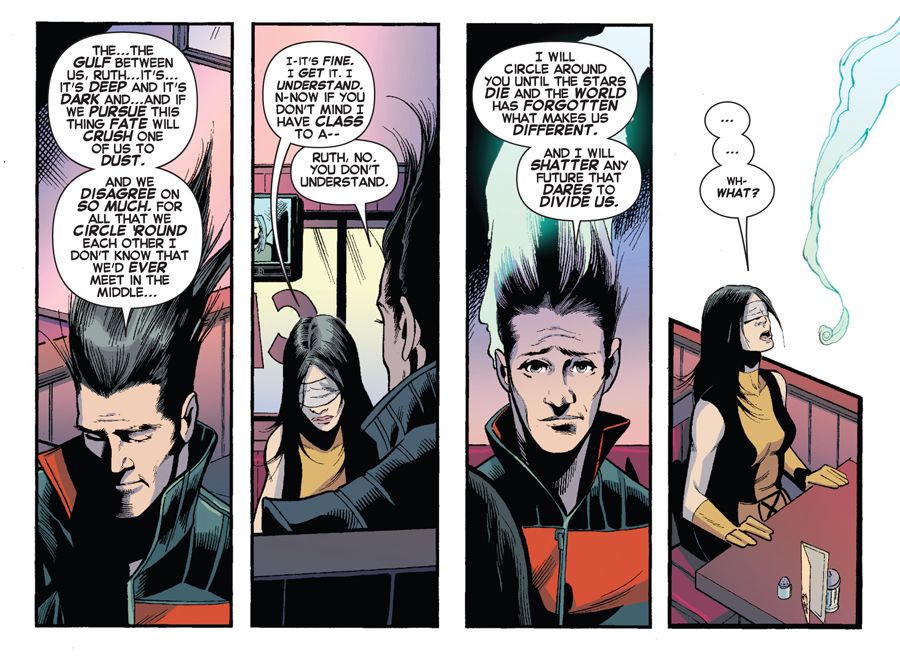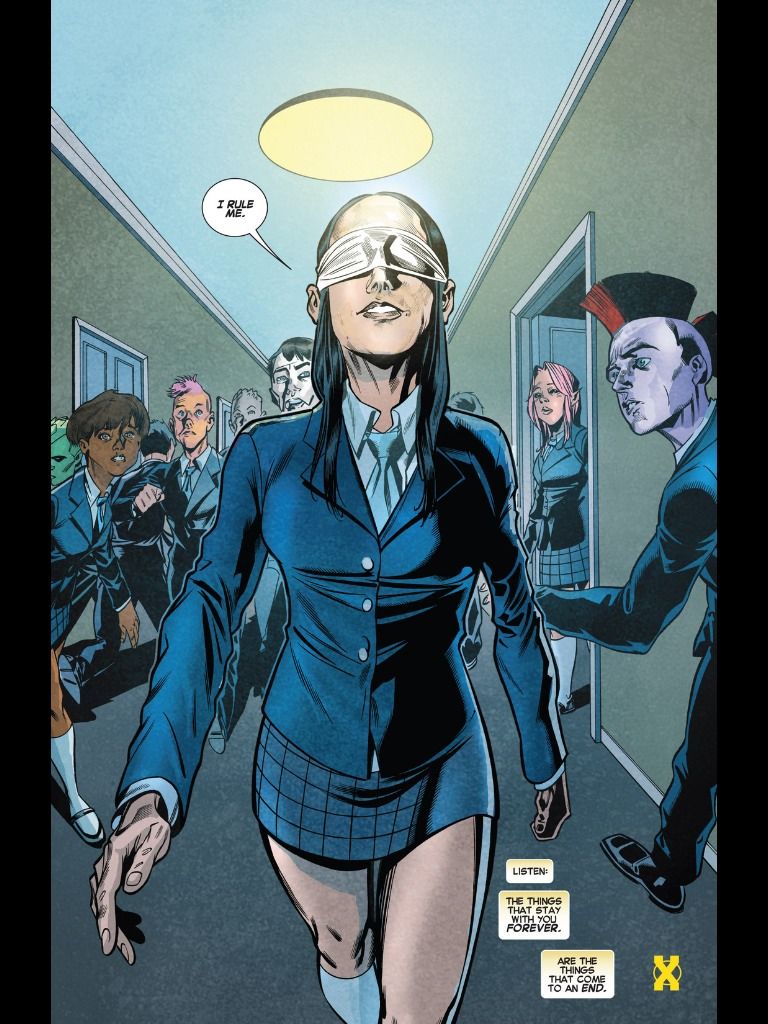Valentine's Day, with its reflection on love, is inescapable. That could be romantic love filled with cherubs and soft-focus lighting, or it could be friendly love, like those little paper Valentines you get in grade school or around the office. It could be family love, like roses for your grandmother to let her know you care. Heck, it could just be the love of chocolate and the knowledge that all those heart-shaped boxes will be on sale tomorrow.
Who we love is based on what we love about them: It could be their rockin' abs, their sense of humor, their empathy or their discount sale price at the drug store. Maybe it's elusive. Often times, what others love about us are qualities we can't see in ourselves. Those are the aspects we have to recognize to better understand our loved ones and, most of all, who we are -- because, as RuPaul says, "If you can't love yourself, how in the hell you gonna love somebody else?"
No one in the Marvel Universe needed to hear a drag queen's words of wisdom more than X-Men Legacy's Legion.
WARNING: Talking about Simon Spurrier's X-Men Legacy series as a whole in vague terms and X-Men Legacy #24's huge spoiler, so go grab all the issues you can and read along!
There's so much to see in Legion as a character. He could be defined by his mutant power, as most mutants are in one respect or another, in that he creates spontaneous mutations within himself that possess various powers. Being limitless makes one surprisingly vague, which is why Legion hasn't really been that interesting a character in his nearly 24 years. David Haller also could be defined by his father, Charles Xavier, which is really where we get a lot of our understanding of him as a character. David most famously created the Age of Apocalypse universe, which is not only super-cool but really dangerous. He has spent most of his character life as a villain, a threat and this ticking bomb that could go off at any moment. He's also been defined by his loneliness: Legion tried to kill Magneto to get more love and attention from his father. He created a pocket universe in "Age of X" to feel wanted and like a hero. Still, despite all of this, it took Ruth Aldine, Blindfold, to see past all of that and find a real person, and because she did, the readers did so, too. It took that kind of love to make the fractured Legion whole.
Let's start at the beginning: Legion and Blindfold first crossed paths at the start of the series (which isn't exactly true, as she was a bit of an Easter egg in "Age of X," but let's go with the flow) as most burgeoning X-relationships do: in tragedy. He ... was a man manipulated by a fractured mind! She ... was a mysterious precog who was destined to be his "nemesis!" It wasn't a perfect longing glance across a crowded room, but what is? Blindfold tried to stop his mind from unraveling and was psionically stabbed for her troubles. Legion went to the X-Mansion to try and save her and wound up battling a villain from her past. That initial confrontation turned to curiosity, as Ruth now followed David through his adventures in the book, a sort of blind judge of his actions, motivations and what was to come. These two fall in love quite naturally over the course of 24 issues, and it's heartwarming to read. As Ruth sees something in David he can't, he tries to be a better person. Did one of these lead to the other?
Of course, there's a large mutant battle and world-shaking danger on the horizon. Does love save David Haller in the end? Well, no, not really. As of X-Men Legacy #24, David no longer exists within the 616 universe, and that's pretty much as not-saved as you can get. Then again, love did sort of save him in the end: Right before the end of all creation, David saw himself, flaws and all, as whole. None of the labels, none of the legacy of being Xavier's son -- just a man and all he could be within himself.
This sounds like a lot of self-actualism hoodoo, but trust me, it's all in the book, and there's so much for the reader in the pages of X-Men Legacy #24 to just take in and stew over that I haven't been able to get it out of my head for days now. In fact, it really is just for the reader, as David takes the time to look beyond the pages and both curse us and comfort us in the story that's wrapped around him. After he'd gathered up all of the fractured mutations that lived in his mind, there was always one, the Weaver, that refused to be absorbed. In the end, the Weaver was himself, at least a part of himself that accepted him for who he was; as the darker evil side of David told him a couple issues back, the best way to cure a sickness of the mind is to learn to live with it. All those parts of Legion, could he live with who he ultimately was? Yes. What allowed him to do so was the 'thought' (whether actual thought, psychic projection, internalized realization, etc. etc.) that his father was proud of him. An act of love.
So, being fully realized, he refuses to submit to a universe where he could not rule himself and unmakes reality so that he never was. Where does this leave Ruth? Pretty OK, it turns out: A part of David (again, actual thought, psychic projection, internalized realization, etc.; psychics are so confusing) remains in her mind. He never truly leaves her, just resides in her heart, no matter what anyone else will tell her.
X-Men Legacy is very clear: songs, journeys and stories most of all have meaning with distance. The moment is beautiful but it's the beauty that it leaves behind in your mind that can carry you through a lot of deeper moments yet to come. And it's the things that stay with you forever that are the things that come to an end.
Thanks, Mr. Spurrier.



